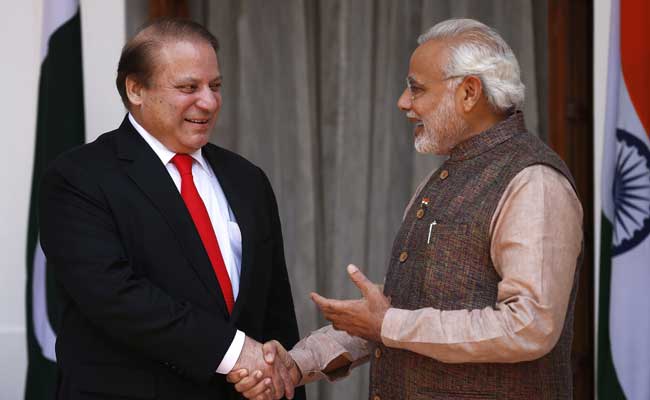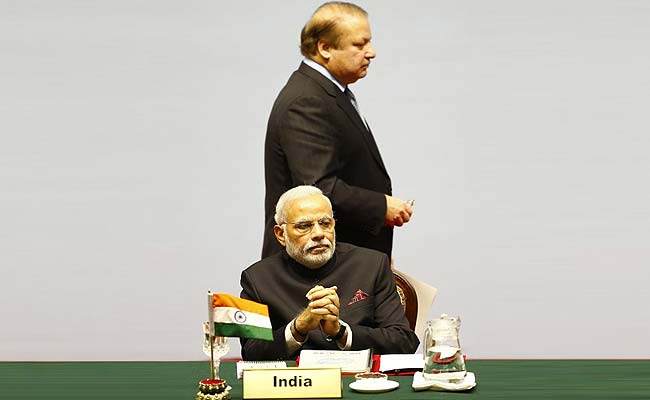1. That India regards cross border terrorism specially in J&K as the central issue between the two countries.
2. That discussion on this central issue should precede discussion on any other issue.
3. That in future India will raise the issue of the illegal occupation by Pakistan of PoK and Gilgit and Baltistan as this is the only remaining issue in the 'final settlement' of the issue of J&K, and
4. That India will now openly raise the issue of violation of human rights in Baluchistan in global fora.
To this I would add the issue of the illegal transfer by Pakistan of the large chunk of the territory of the Riyasat of J&K to China and which China has gladly and wrongly occupied.
The new approach of the government has already come under criticism by the peaceniks in India. Some are pointing out that this is a departure from the earlier stand of the BJP, which had criticized Manmohan Singh for including a reference to Balochistan in the infamous Sharm el-Sheikh joint statement. This accusation is clearly misplaced. I was in the forefront of the attack on the then government on this issue and it was I who had famously said in Lok Sabha that even all the waters of the seven seas would not be able to wash this stain. Why had I said this? I had said it because implicit in the reference to Balochistan was the fact that India was somehow involved in creating mischief in Balochistan and Pakistan could raise this issue in bilateral talks. It is not the same thing as India raising the issue of human rights violations by Pakistan in Balochistan.
I have been critical of the Prime Minister in the past for his Pakistan policy. But on this occasion, I would applaud him for this change in India's policy towards Pakistan. But I wish to raise another point. Is it necessary for every Indian Prime Minister to reinvent the wheel? And is it necessary for us Indians to celebrate every time an Indian Prime Minister makes a move towards Pakistan, whether out of cordiality or out of hostility?
Remember how enthusiastically we had celebrated when our Prime Minister decided to suddenly visit Lahore on his way back from Kabul in December last year? When he embraced Nawaz Sharif, it seemed as if he was embracing a long-lost friend and brother. We had imagined that once again we were on the verge of history, once again an Indian Prime Minister had shown the world how different we are. It was a masterstroke of diplomacy.

In December, PM Modi made a surprise stopover in Pakistan on his way home from Afghanistan
On the other hand, Pakistan has been clear in its mind about how it wants to deal with India from Day One. Its policy towards India has been driven by a visceral hatred of India. It convinced itself on August 14, 1947 that Pakistan was the equal of India in all respects, if not superior to it. So parity with India, if not superiority over it, became the guiding principle of its foreign policy along with hatred for India. It has conducted its bilateral relations with India and its global outreach keeping these principles in mind. So while it may have surrendered quietly when a mere Deputy Secretary of the US State department rang up Musharraf after 9/11 and threatened to reduce Pakistan to the Stone Age if it did not cooperate with it in its fight against terror in Afghanistan, it has no hesitation in describing terrorists as freedom fighters and martyrs when it concerns India. It will keep quiet when the US repeatedly violates its sovereignty and territorial integrity, even kills Osama deep inside its territory, but the Pakistani army chief would threaten India with dire consequences if ever such a thought crossed the mind of even the Shiva Sena in India.
Duplicity has been the main instrument of Pakistan's India policy. We had the first taste of it when the Pakistani regulars under the disguise of the so-called raiders from the North West of Pakistan attacked J&K with the full support of the Pakistani state in 1947. The same thing happened in Kargil in 1999. It has continued till today. Non-state actors of Pakistan, whose heart bleeds for a variety of causes, are ready to lay down their precious lives for these causes all over the world, specially in Afghanistan and India. Poor Pakistan is unable to control them because they are non-state actors.

PM Narendra Modi and Pakistan Prime Minister Nawaz Sharif at the 18th SAARC Summit (File photo)
Embarrassing India and cornering it in all global forums is a favorite pastime of Pakistan. It can descend to any level to do so. And we Indians do feel embarrassed and the Pakistanis know it and take full advantage of it.
What is India's problem? Our problem is that we have pretended to be the leaders of the world, at least the third world, from the beginning of our independent existence. We were therefore too magnanimous, too decent, too dignified to get involved with Pakistan in tu tu mein mein. We have always been careful about confronting it and so our problem continues.
The way to deal with a bully is to confront him. That is what the US, which is friendly with Pakistan, has done. That is what India, which is not so friendly with Pakistan, has always hesitated to do.
I am glad circumstances have forced India to change course and adopt a more realistic policy in dealing with Pakistan, a policy I have been advocating from the days I was in government. I hope it will last.
(Yashwant Sinha is a senior BJP leader and former Union Minister of External Affairs.)
Disclaimer: The opinions expressed within this article are the personal opinions of the author. The facts and opinions appearing in the article do not reflect the views of NDTV and NDTV does not assume any responsibility or liability for the same.


